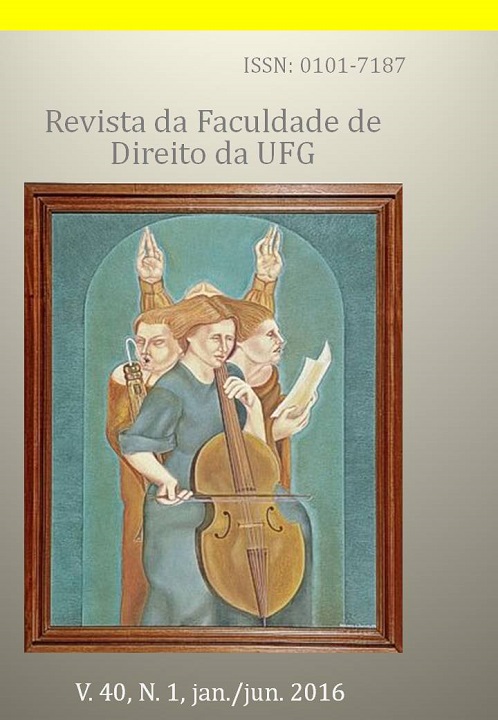ADMISSIBILIDADE E LIMITES DAS SENTENÇAS ADITIVAS: JURISDIÇÃO CONSTITUCIONAL PARA ALÉM DO LEGISLADOR NEGATIVO - DOI: http://dx.doi.org/10.5216/rfd.v40i1.37655
DOI :
https://doi.org/10.5216/rfd.v40i1.37655Mots-clés :
Pluralismo Jurídico, Jurisidição constitucionalRésumé
RESUMO:O presente artigo analisa as sentenças aditivas como técnica alternativa de decisão no controle de constitucionalidade de omissões legislativas inconstitucionais. Investigou-se a compatibilidade das sentenças aditivas com a separação de poderes e os limites da utilização dessa controversa técnica decisória, bem como sua aplicação pelo Supremo Tribunal Federal (STF). A constatação da insuficiência das técnicas decisórias tradicionalmente utilizadas evidencia a necessidade de alternativas que superem as omissões inconstitucionais, garantindo a efetividade dos direitos fundamentais. Nesse cenário, as sentenças aditivas podem ser um útil instrumento de superação das eventuais omissões inconstitucionais do legislador. Porém, esse expediente é recorrentemente considerado incompatível com a concepção do tribunal constitucional como legislador negativo. Como referencial teórico adotou-se a conceituação das sentenças aditivas como técnicas decisórias do controle de constitucionalidade, conforme trabalhada pelo constitucionalista italiano Gustavo Zagrebelsky. O presente estudo concluiu pela compatibilidade das sentenças aditivas com a ordem constitucional brasileira, desde que respeitados determinados limites, como os impostos ao próprio legislador e a necessidade de prévia e suficiente orientação pelo ordenamento jurídico para a adição normativa.
ABSTRACT:
This article analyzes the additive judgments as an alternative decision technique in the judicial review of unconstitutional legislative omissions. It is investigated the compatibility of the additive sentences with the separation of powers and the limits of using such controversial operative technique and its application by the Federal Supreme Court (STF). The insufficiency of traditional decision-making techniques highlights the need for alternatives to overcome the unconstitutional omissions, ensuring the effectiveness of fundamental rights. In this scenario, the additive sentences can be a useful tool to overcome any unconstitutional legislative omissions. However, this expedient is recurrently considered incompatible with the concept of the constitutional court as a negative legislator. As a theoretical framework it is adopted the concept of the additive judgments as decision-making techniques of judicial review, as crafted by the Italian constitutionalist Gustavo Zagrebelsky. This study concluded that there is a compatibility of the additive sentences with the Brazilian constitutional order, since certain limits are respected, as in the case of taxes applied to the legislature itself and the need for prior and sufficient guidance by the legal system for normative addition.
Téléchargements
Téléchargements
Publié-e
Comment citer
Numéro
Rubrique
Licence
Les auteurs qui publient dans cette revue accordent à Revista da Faculdade de Direito da UFG une licence mondiale libre de droits, soumise aux termes et conditions de la Creative Commons Attribution 3.0 Brasil Legal License Creative Commons Attribution License
Les auteurs concèdent à RFD UFG tous les droits d'auteur sur les articles qui y sont publiés, qui les conservent en exclusivité jusqu'à l'avènement du domaine public sur ceux-ci.
























